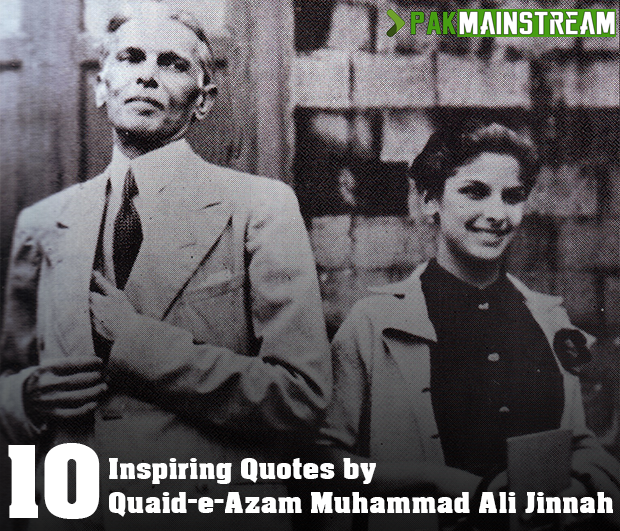Some people are born great, some achieve greatness, and others have greatness thrust upon them, but Jinnah qualifies all the criteria of being a great leader.
Born on December 25, 1876, in Karachi, Muhammad Ali Jinnah articulated the aspirations of Indian Muslims which resulted in the creation of Pakistan, then the largest Muslim state on the world map.
He was a lawyer, politician and a great visionary whose immense struggle made the tough task of the foundation of a Muslim state possible on 14th August 1947. For being a driving force behind the establishment of this country, Jinnah is known as Quaid-i-Azam, meaning Great Leader and Baba-e-Qaum meaning Father of The Nation.
As the nation celebrates his 139th birthday, we take a look at some of his inspirational quotes:
1. Failure is a word unknown to me.
2. Expect the best, Prepare for the worst.
3. Think 100 times before you take a decision, But once that decision is taken, stand by it as one man.
4. No struggle can ever succeed without women participating side by side with men.
5. I do not believe in taking the right decision, I take a decision and make it right.”
The role of Muhammad Ali Jinnah did not end with the creation of Pakistan. While serving as Governor-General, he played a very active part in government and worked tirelessly to address the issues of a newly born state.
6. “With faith, discipline and selfless devotion to duty, there is nothing worthwhile that you cannot achieve.”
7. “Do not forget that the armed forces are the servants of the people.”
8. “You have to stand guard over the development and maintenance of Islamic democracy, Islamic social justice and the equality of manhood in your own native soil.”
9. That freedom can never be attained by a nation without suffering and sacrifice has been amply borne out by the recent tragic happenings in this subcontinent.
10. Islam expect every Muslim to do this duty, and if we realise our responsibility time will come soon when we shall justify ourselves worthy of a glorious past.
7. “Do not forget that the armed forces are the servants of the people.”
8. “You have to stand guard over the development and maintenance of Islamic democracy, Islamic social justice and the equality of manhood in your own native soil.”
9. That freedom can never be attained by a nation without suffering and sacrifice has been amply borne out by the recent tragic happenings in this subcontinent.
10. Islam expect every Muslim to do this duty, and if we realise our responsibility time will come soon when we shall justify ourselves worthy of a glorious past.
In the months after independence, Quaid-i-Azam worked to curb religious violence, provide relief to millions of refugees and attempted to protect religious minorities and convince them to remain in Pakistan.
He crafted Pakistan’s economic policy and currency, established the military, government and educational institutions.
He was a boss, a true boss who knew how to survive and thrive against the odds.
He crafted Pakistan’s economic policy and currency, established the military, government and educational institutions.
He was a boss, a true boss who knew how to survive and thrive against the odds.








